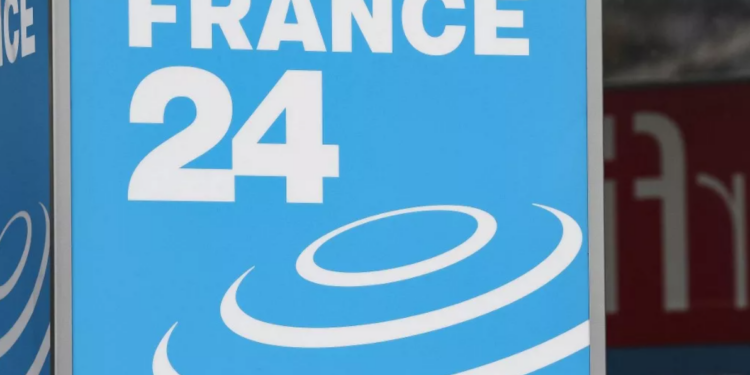Burkina Faso ruling junta ordered the suspension after France 24 broadcasted an interview it had conducted with the leader of Al Qaeda in the Islamic Maghreb (AQIM) in early March, within its territories.
Read More: Kenya: Hundreds Storm ex-President Kenyatta’s Farm
“By opening its airwaves to AQIM’s top leader, France 24 is not only acting as a communications agency for these terrorists, but is also providing a space for legitimising terrorist actions and hate speech aimed at fulfilling the organisation’s evil intentions in Burkina Faso,” said a statement signed by government spokesman Jean-Emmanuel Ouedraogo.
“The government has therefore decided in all responsibility, and in the name of the higher interest of the nation, to suspend sine die the broadcasting of France 24 programmes throughout the national territory,” the statement said.
On 6 March, France 24 broadcast written answers from Abu Obeida Youssef al-Annabi, the head of AQIM, to some fifteen questions put by the French channel’s journalist and specialist in jihadist issues, Wassim Nasr.
At the beginning of December, the authorities in Ouagadougou had already suspended the broadcasting of Radio France Internationale (RFI), from the same group as France 24, France Médias Monde.
Read More: United States Set to Hold Democracy Summit
RFI was accused of having relayed “an intimidation message” attributed to a “terrorist leader”.
RFI and France 24 have also been suspended in Mali, which is also ruled by a military junta, for a year.
“In the noble struggle to liberate our country from the barbarity of terrorist hordes and armed bandits, the government warns that it will remain intransigent in defending the vital interests of our people against all those who would play the megaphone in the amplification of terrorist actions and speeches of hatred and division conveyed by these armed groups,” the government notes.
Read More: African Entrepreneurship Grows Amid Global Investment Drop in Start-Ups
Since 2015, Burkina Faso has been caught up in a spiral of violence perpetrated by jihadist groups linked to the Islamic State and al-Qaeda, which has left a total of 10,000 civilians and soldiers dead, according to NGOs, and some two million people displaced. Captain Ibrahim Traore, who came to power in a coup six months ago, said in February that he was “determined” to fight the jihadists, despite the increase in attacks.









